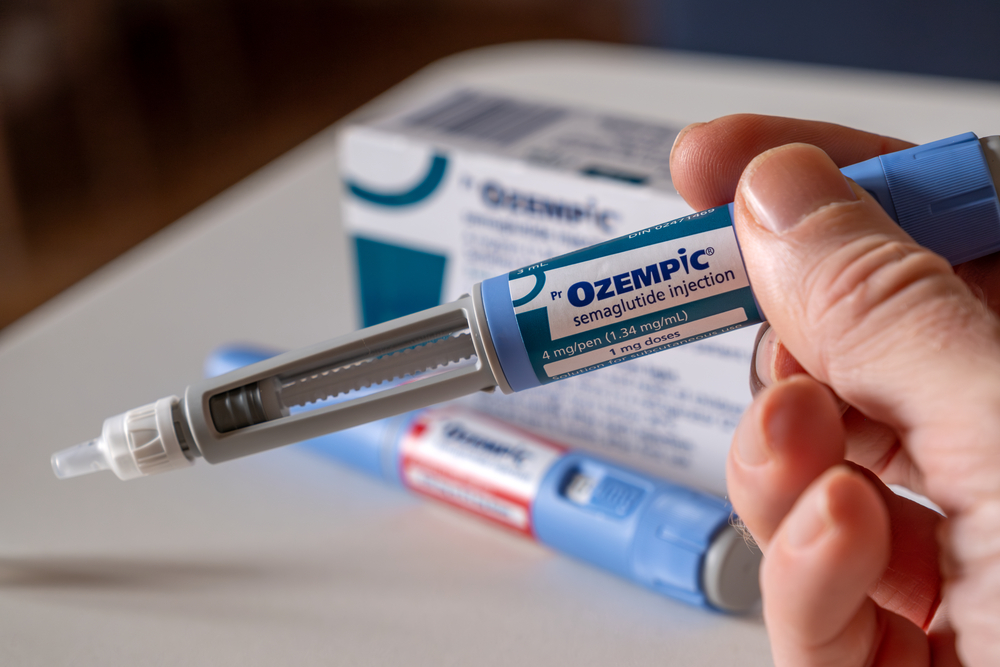Acquiring sufficient vitamin D can be difficult. Studies indicate that upwards of 80 percent of individuals may experience a deficiency in this vital nutrient. Initially linked to bone health, it has since been revealed to play a crucial role in the immune system.
GETTING ILL OFTEN
Vitamin D directly affects how your immune system responds to infections and viruses. If you are always getting sick, it could be related to lower-than-normal vitamin D levels.
FATIGUE
If you are feeling tired, there could be numerous reasons, but you should certainly do a blood test and check for vitamin D levels. A 2015 study published in the Global Journal of Health Science shows that vitamin D deficiency is a common contributor to fatigue.
MUSCLE WEAKNESS
The Cleveland Clinic claims that muscle cramps and weakness are linked to a lack of vitamin D. This condition is not age-related, as researchers found it in children and seniors.
LOWER BACK PAIN IN WOMEN
A 2008 study published in the Journal of the American Geriatrics Society said lower vitamin D concentrations were linked to significant back pain in women. This conclusion did not apply to men.
MUSCLE ACHE
Mayo Clinic suggests that any muscle pain, especially during summer, could be caused by vitamin D deficiency.
GUM DISEASES
Since vitamin D helps our bodies absorb calcium, it is clear why its deficiency might lead to gum disease and, therefore, loss of teeth.
HAIR LOSS
Vitamin D helps push the hair from its resting to the growing phase. A vast number of women with alopecia had a significant lack of this vitamin.
SEVERE PMS
John Hopkins Medicine researchers found a link between severe PMS and severe and frequent menstrual cramps and the lack of vitamin D.
BONE ACHES AND PAIN
Any bone pain or discomfort could indicate a lack of vitamin D. If you feel aches in your breastbone or shinbone areas, you are more likely to suffer from vitamin D deficiency.
INSOMNIA
If you are experiencing trouble sleeping, yet you are unsure of the cause, it could be related to vitamin D. Low doses of the sunshine vitamin are connected to sleeping disorders, researchers conducted and published in the Nutrients in 2018.
ECZEMA
Lower vitamin D is associated with increased incidence and severity of eczema signs, according to a 2015 study in the Journal of Clinical Medicine. Certain types of eczema have been linked with vitamin D insufficiency, so it would be best to see your doctor if you have this skin condition.
SLOW-HEALING WOUNDS
Journal of Dental Research concluded that vitamin D levels are vital to post-surgical healing. If your wounds take forever to heal, you should check whether a lack of vitamin D is the issue.
FEELING DIZZY
A 2018 study published in the European Archives of Oto-Rhino-Laryngology states not getting an adequate amount of vitamin D can cause benign paroxysmal positional vertigo (BPPV). This suggests that a lack of the sunshine vitamin can lead to prolonged episodes of dizziness.
ERECTILE DYSFUNCTION
Image credit: Elnur via Canva.com
Johns Hopkins University research showed men with a deficiency in vitamin D are more likely to have ED than men with normal sunshine vitamin levels.
FREQUENT URINARY TRACT INFECTIONS
Vitamin D helps prevent infection by helping human bodies create natural antibiotics. If someone suffers from chronic UTIs, it could be connected to a vitamin D deficit, regardless of age.
ISSUES WITH DIGESTION
Inflammation of the digestive tract causes diarrhea, abdominal pain, and fatigue. Insufficient vitamin D could cause inflammatory bowel disease (IBD) and affect its severity.
BEING OVERWEIGHT
Obese people are 35% more likely to be vitamin D deficient than non-obese people. Vitamin D plays a crucial role in a healthy diet, as found in research in 2015 and 2019.
SIGNS OF DEPRESSION
Women with low vitamin D are more likely to develop depression symptoms. Research published in 2020 claims that people experiencing negative emotions who received vitamin D supplements noticed an improvement in symptoms. Among them were those with major depressive disorder.
JOINT PAIN
Joint pain could be caused by taking too little or too much vitamin D. This vitamin is vital for the immune system, muscles, and bones, but it is also dangerous to use without consulting your GP.
JOINT INFLAMMATION
Vitamin D is critical for overall health. It could reduce joint inflammation, but you need to see your doctor and check if you need vitamin D supplements and changes in your diet.
HIGHER RISKS OF PNEUMONIA
People who suffer from vitamin D deficiency are 2.5 times more likely to get pneumonia due to a weakened immune system.
EXCESSIVE SWEATING
With regular or moderate activity, an average body temperature, and a mild temperature environment, excessive sweating might be a sign of vitamin D deficiency.
INSULIN RESISTANCE
Insulin resistance is a stage before prediabetes and diabetes. The lack of vitamin D might cause the condition, which, if left untreated, could lead to more severe health issues.
OSTEOPOROSIS
Vitamin D deficiency leads to a loss of bone density since our bodies rely on it to help absorb calcium, which is vital for bone health.
CHILDHOOD LANGUAGE IMPAIRMENT
Though incomplete, certain studies suggest that taking prenatal vitamin D supplements may reduce the risk of developmental language problems in children.
TOOTH DECAY IN TODDLERS
Vitamin D is crucial to the formation of our teeth. Future mothers should regularly check their vitamin D levels since deficiency could lead to premature birth and tooth decay in young children.
RISKS OF CANCERS
Vitamin D deficiency was linked to colorectal cancer risk in a study from 2018. Low vitamin D levels were associated with more advanced, aggressive prostate tumors. Similarly, people with high vitamin D levels were 35% less likely to develop pancreatic cancer.






